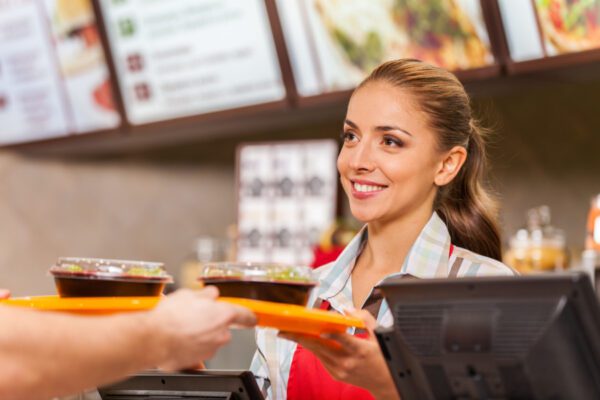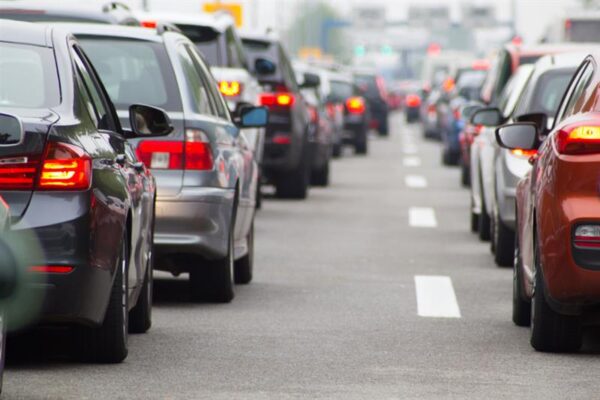Running a fast-food restaurant can be rewarding, offering delectable dishes to customers quickly and efficiently. However, like any business, it comes with a risk. To safeguard your investment and ensure the longevity of your fast-food establishment, it’s crucial to have the right insurance coverage in place. In this guide, we will go into the types of insurance you need for your fast-food restaurant and why they are essential.
Commercial Property Insurance
Fast food restaurants rely heavily on their physical location, including the building and its contents. Commercial property insurance helps protect your business from unexpected disasters like fires, storms, or theft. It typically covers repairing or replacing your building and equipment, such as stoves, ovens, fryers, and refrigerators. Additionally, it can help with the cost of lost inventory. This insurance is indispensable for your business’s continuity in the fast-paced world of quick-service restaurants.
Tip: To ensure the longevity of your fast-food establishment, invest in commercial property insurance to protect your building and equipment from unexpected disasters.
General Liability Insurance
General liability insurance is essential for fast food restaurants as it covers bodily injury and property damage claims. Slip and fall accidents, burns, or illnesses can happen, even with the utmost care and cleanliness. This coverage helps pay medical bills and legal fees if a customer or employee files a lawsuit against your restaurant. It also covers advertising and personal injury claims, providing a safety net against unforeseen liabilities.
Tip: General liability insurance protects your fast-food restaurant from bodily injury and property damage claims, protecting against lawsuits and medical expenses.
Workers’ Compensation Insurance
Your fast-food restaurant’s staff is vital to its day-to-day operations. Workers’ compensation insurance is a legal requirement in most states and provides financial support to employees who are injured on the job. Whether it’s a kitchen accident or a slip in the dining area, this coverage ensures your employees are taken care of, covering their medical expenses and lost wages. It also protects your business from being sued by injured workers in your restaurant.
Tip: Comply with legal requirements and care for your employees with workers’ compensation insurance, covering medical expenses and lost wages in case of job-related injuries.
Product Liability Insurance
Fast food restaurants serve food to the public, making product liability insurance crucial. This coverage protects your business if a customer becomes ill due to contaminated or spoiled food or suffers an allergic reaction. In the event of a lawsuit, product liability insurance can help cover legal fees and settlements, keeping your restaurant financially secure.
Tip: Safeguard your fast-food restaurant’s reputation and financial well-being with product liability insurance, protecting against food-related illnesses and allergic reactions.
Business Interruption Insurance
Any disruption in your operations can result in significant financial losses in the fast-paced world of fast food. Business interruption insurance compensates for lost income and helps cover ongoing expenses when your restaurant is forced to close due to a covered event, such as a fire or natural disaster. It can distinguish between staying afloat during challenging times or facing financial ruin.
Tip: Stay resilient in adversity with business interruption insurance, which compensates for lost income and ongoing expenses during disruptions.
Equipment Breakdown Insurance
Fast food restaurants rely on various equipment to prepare and serve their menu items. Equipment breakdown insurance helps cover the cost of repairs or replacement when vital appliances like fryers, grills, or refrigerators break down unexpectedly. This coverage is essential to minimize downtime and keep your restaurant running smoothly.
Tip: Prevent downtime and maintain operational efficiency by investing in equipment breakdown insurance, covering the cost of repairs or replacements for essential appliances.
Cyber Liability Insurance
In today’s digital age, fast-food restaurants rely on technology for various operations, including online ordering systems and customer data storage. Cyber liability insurance protects your business from data breaches and cyberattacks from outside or even inside. It covers the costs of notifying affected customers, recovering compromised data, and handling legal matters related to data breaches.
Tip: Safeguard your fast-food restaurant’s online presence and customer data with cyber liability insurance, protecting against data breaches and cyberattacks.
Employment Practices Liability Insurance (EPLI)
Fast-food restaurants must adhere to employment laws and regulations when hiring, managing, and terminating employees. EPLI covers claims related to wrongful termination, discrimination, harassment, or other employment-related issues. Protect your business and reputation by investing in EPLI to mitigate legal and financial risks associated with employment disputes.
Tip: Ensure legal compliance and protect your restaurant from employment-related claims with Employment Practices Liability Insurance (EPLI).
Umbrella Insurance
While your primary liability policies offer substantial coverage, there may be instances where the limits are exceeded. In such cases, umbrella insurance provides additional protection, ensuring your fast-food restaurant isn’t exposed to hefty legal settlements or damages. It acts as a financial safety net, providing coverage beyond the limits of your other policies.
Tip: Strengthen your fast-food restaurant’s coverage with umbrella insurance, offering additional protection when primary policy limits are exceeded.
Which types of insurance are essential for your fast-food restaurant?
Running a fast-food restaurant comes with its fair share of risks, making various types of insurance essential to protect your business.
Consider purchasing commercial property insurance to safeguard your physical assets, such as the building, equipment, and inventory, from unexpected events like fires or natural disasters.
Liability insurance is also crucial, covering potential lawsuits from customer injuries or food-related illnesses.
Workers’ compensation insurance protects your employees and ensures you comply with legal requirements.
Additionally, consider business interruption insurance to cover financial losses if you temporarily close due to unforeseen circumstances.
Cyber insurance protects you against data breaches or online threats, which are increasingly common in today’s digital age.
By having these essential types of insurance in place, you can secure the future of your fast-food establishment and focus on serving delicious meals to your customers without worrying about unexpected setbacks.
Conclusion
Running a fast-food restaurant can be highly rewarding but has its fair share of risks. To protect your investment, ensure the longevity of your business, and maintain financial stability, it’s crucial to have the right insurance coverage in place. Commercial property insurance, general liability insurance, workers’ compensation insurance, and other essential policies offer protection to keep your fast-food establishment thriving. Don’t leave your business vulnerable to unexpected disasters and liabilities – invest in the right insurance coverage today.
- https://www.chaffinluhana.com/property-damage-claims-bodily-injury-claims-difference/
- https://www.thehartford.com/workers-compensation/who-pays-for-workers-compensation
- https://www.embroker.com/blog/epli-claims-examples/
Material posted on this website is for informational purposes only and does not constitute a legal opinion or medical advice. Contact your legal representative or medical professional for information specific to your legal or medical needs.



